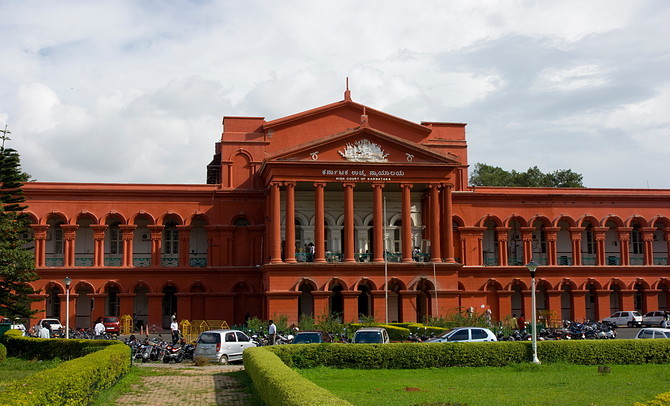
Hijab ban: Confusion prevails after court leaves with no interim order

A three-judge bench of Chief Justice Ritu Raj Awasthi, Justice J M Khazi and Justice Krishna S Dixit, which was formed on Wednesday, posted the next hearing to February 14.
The bench said it wants the matter to be resolved at the earliest, but till that time peace and tranquility is to be maintained.
“Till the disposal of the matter, you people should not insist on wearing all these religious things,” CJ Awasthi said. “We will pass an order. Let the schools-colleges start. But till the matter is resolved, no student should insist on wearing religious dress,” he said.
However, the petitioner’s lawyer Devadatt Kamat requested the court to consider his objection that such an order would amount to suspension of his client’s constitutional rights under article 25. “That will be a total affront to their rights,” Kamat contended.
In response, Chief Justice Awasthi said the arrangement is only for a few days till the matter is resolved and asked him to cooperate.
However, the court posted the hearing on Monday without passing an interim order. When one of the judges said he would pass an interim order — ruling nobody should wear a scarf, shawl or hijab — Kamat and another advocate Sanjay Hegde raised an objection, saying it would come in way of one’s religious belief and that such an order should not be passed at this stage. And the judges left it there, without issuing an interim order.
On Wednesday, Justice Dixit, who was hearing the case, referred it to Justice Awasthi’s consideration with a view that a larger bench may look into the case.
Earlier on Thursday, the Supreme Court turned down the petition seeking a transfer of the case from the high court to the apex court.
Section 144 has been invoked in Bengaluru, restricting any gatherings, agitations or protests within 200 metres of schools, colleges, universities and other educational institutions from February 9 to February 22.
A controversy broke out in December last when the managements of two government educational institutions barred girl students wearing hijab from attending classes. The students had been wearing the hijab for at least two years with no problems. Once the managements barred them from classes and the BJP state government backed the ban, the controversy spread.
Students reportedly owing allegiance to the Sangh Parivar wore saffron scarves in a a case of “competitive communalism” The row spread to other educational institutions in different parts of the state, and the protests took a violent turn at some place earlier this week, prompting the government on Tuesday to declare three days holiday for the institutions.
(With inputs from agencies)


